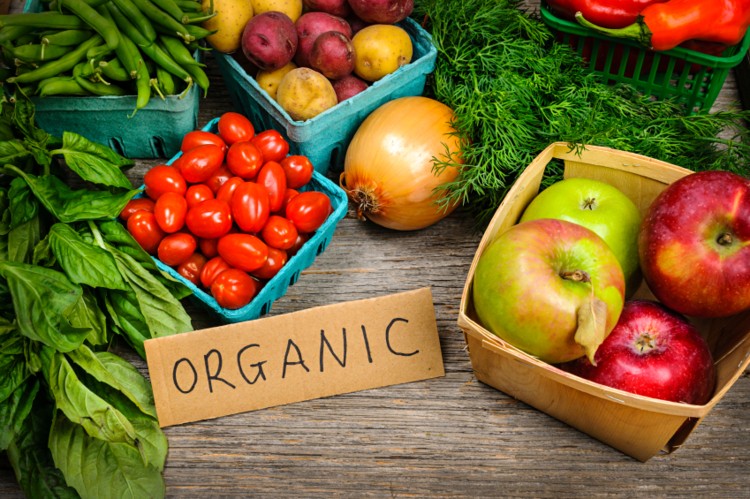
Organic Food Could Be Worse for the Climate Than Non-Organic

Nick Col
Off Grid Living Ltd
Like most people, you probably aspire to eat organic (when possible) to benefit the environment, your health, and the health of your family members. But, according to a new study published in Nature, opting to purchase certified organic produce might actually be doing more harm to the ecosystem than simply eating conventional food.
The international study was conducted by the Chalmers University of Technology, in Sweden. According to a press release, the researchers concluded that organically farmed food has a bigger climate impact than conventionally farmed food. Why is this? Because greater areas of land are required to farm pesticide-free produce.

Researchers reportedly developed a new method for assessing the climate impact of land-use called “Carbon Opportunity Cost.” This technique, along with other methods, was relied upon to compare organic and conventional food production. It was discovered that organic food has the potential to result in much higher emissions than conventionally-farmed produce. Said Stefan Wirsenius, an associate professor from Chalmers, who participated in the study:
“Our study shows that organic peas, farmed in Sweden, have around a 50 percent bigger climate impact than conventionally farmed peas. For some foodstuffs, there is an even bigger difference – for example, with organic Swedish winter wheat the difference is closer to 70 percent.”
Why Organic Has a Bigger Carbon Footprint
The study found that the yields per hectare when farming organically are much lower. This is primarily because fertilizers are not used in organic farming. To produce a similar yield to crops that use fertilizers, a much larger area of land is required. Based on this reason alone, the researchers concluded that cultivating organic food causes a much larger climate impact.

“The greater land-use in organic farming leads indirectly to higher carbon dioxide emissions, thanks to deforestation,” said Wirsenius. “The world’s food production is governed by international trade, so how we farm in Sweden influences deforestation in the tropics. If we use more land for the same amount of food, we contribute indirectly to bigger deforestation elsewhere in the world.”
Wirsenius also claims that organic meat and dairy products (from a climate point of view) are worse than conventionally produced equivalents. He explained, “Because organic meat and milk production uses organic feeds, it also requires more land than conventional production. This means that the findings on organic wheat and peas in principle also apply to meat and milk products. We have not done any specific calculations on meat and milk, however, and have no concrete examples of this in the article.”
“The fact that more land use leads to greater climate impact has not often been taken into account in earlier comparisons between organic and conventional food,” Wirsenius continued. “This is a big oversight, because, as our study shows, this effect can be many times bigger than the greenhouse gas effects, which are normally included. It is also serious because today in Sweden, we have political goals to increase production of organic food. If those goals are implemented, the climate influence from Swedish food production will probably increase a lot.”
What are your thoughts? Please comment below and share this news!

